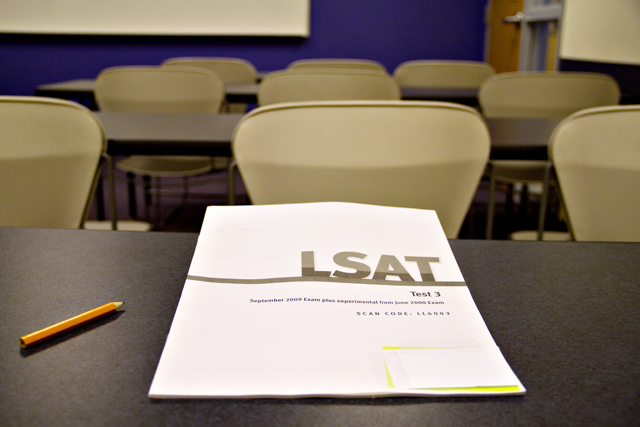LSAT standardized tests made optional for law school admissions, students reflect
November 29, 2022
The American Bar Association proposed leaving the requirement of LSAT scores on applications up to the discretion of individual law school institutions in the spring. On Nov. 18, it voted to officially drop the standardized test from application requirements.
The LSAT tests undergraduate students on reading comprehension and analytical skills. Julia Flack, a communications and government sophomore, said she thinks making the LSAT optional will allow students better opportunities to showcase themselves.
“I think that’s awesome,” Flack, a prospective law student, said. “People should just submit what represents them best, and that’s the direction we’re moving (for) colleges, so I think it’s a smart move for law schools to follow suit.”
Government freshman Soni Shukla, another prospective law student, said standardized testing can benefit students, but should ultimately be minimized to promote equity for marginalized communities.
“On one hand, it provides an opportunity for low-income or marginalized groups to get access to education opportunities they otherwise wouldn’t have,” Shukla said. “On the other side … standardized tests are very classist because at the end, the person who’s getting the highest score is a person who has the time and the resources to take those tests and oftentimes, low-income groups don’t have the necessary resources or time.”
Flack said due to her own learning obstacles, she experienced challenges training for standardized tests throughout her life, and preparing for the LSAT, if required, would be even more difficult.
“I’m dyslexic, so I had a super hard time with the ACT; I ended up getting extra time and thing’s got a little bit better, but honestly, I don’t know if that’s an option for the LSAT,” Flack said. “It’s kind of frustrating when so many students feel like it doesn’t reflect their knowledge or level of education.”
According to the LSAC website, students taking the LSAT can request accommodations, including extra time, based on previous accommodations in other standardized tests, what type of accommodation they are requesting, or the disability they have.
Shukla said the LSAT is a barrier for students on top of their academic credentials as it makes higher education affordability less accessible, putting low-income students at an immediate disadvantage.
“It’s just another barrier for low-income people to not be able to pursue higher education in my opinion, because in reality, it doesn’t test anything you need to become a lawyer,” Shukla said.
With the decision to not require schools to make LSAT scores a prerequisite for admission, Shukla said this is an opportunity for applicants to show their unique skills outside of strict testing.
“Being a lawyer is not dependent at all on how you do on the LSAT, similarly to the SATs,” Shukla said. “How you do in life has nothing to do with what you get on the SATs, so I think (the testing) is just another barrier.”











